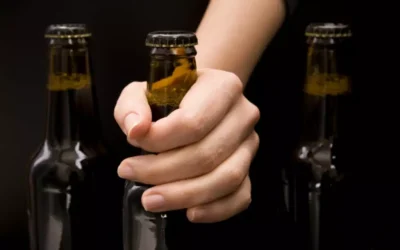Content
Increasing attendance at mutual self-help group (e.g., Alcoholics or Narcotics Anonymous) meetings and boosting other personal support can exert additional positive effects. Other than mindfulness, a quality addiction treatment center like Santé Center for Healing will offer additional support during the stages of relapse. An aftercare program may be a part of the individual’s relapse prevention plan. As a part of the relapse prevention model of care, the individual may also take part in an intensive outpatient program, sober living, and individual therapy and medication management. A thorough and comprehensive relapse training approach includes developing an individualized prevention plan.
What are symptoms of relapse?
If symptoms seem to get worse, or symptoms that had been in remission reappear, the person may be in relapse. Relapse is sometimes caused by a new source of stress, or an old source of stress that has gotten worse.
If you don’t change your behavior at this stage and you live too long in the stage of emotional relapse you’ll become exhausted, and when you’re exhausted you will want to escape, which will move you into mental relapse. Withdrawal symptoms like nausea, shakiness, and sweating can be so difficult that you want https://ecosoberhouse.com/article/9-most-important-relapse-prevention-skills-in-recovery/ to use drugs again just to stop them. Medications can help you manage withdrawal symptoms before they trigger a relapse. Being aware of the stages of relapse and having a plan to deal with them can help prevent you from using again. Follow these 10 techniques to help you stay on track with your recovery.
Gambling: Behavior and Cognitive Approaches
The recently introduced dynamic model of relapse [8] takes many of the RREP criticisms into account. Additionally, the revised model has generated enthusiasm among researchers and clinicians who have observed these processes in their data and their clients [122, 123]. Still, some have criticized the model for not emphasizing interpersonal factors as proximal or phasic influences [122, 123]. Other critiques include that nonlinear dynamic systems approaches are not readily applicable to clinical interventions [124], and that the theory and statistical methods underlying these approaches are esoteric for many researchers and clinicians [14].
The symptoms of emotional relapse are very similar to post-acute withdrawal. Understanding this condition makes it easier to identify the onset of emotional relapse. Failure to identify emotional relapse makes the phases progress quickly. When I’m not keeping the focus on myself, I am at risk of becoming judgmental and expecting too much from others. My priorities become askew, and I think how nice some junk food would taste.
Step 2: Make a plan to manage cravings and triggers by naming specific challenges and methods for overcoming them.
Another form of bargaining is when people start to think that they can relapse periodically, perhaps in a controlled way, for example, once or twice a year. Bargaining also can take the form of switching one addictive substance for another. A relapse prevention plan can serve as a way to improve all aspects of life and hold yourself accountable. Refer back to the plan often to remind yourself why you are doing this and how to keep it up.

But they can be stressful issues, and, if tackled too soon, clients may not have the necessary coping skills to handle them, which may lead to relapse. Dealing with post-acute withdrawal is one of the tasks of the abstinence stage [1]. Post-acute withdrawal begins shortly after the acute phase of withdrawal and is a common cause of relapse [17].
Creating a Relapse Prevention Plan
Because addiction is so destructive and pervasive, recovery is an incredibly time-intensive, exhausting, and challenging process. Therefore, it is no wonder that many people encounter bumps in the road and begin using again. Learning coping skills for relapse prevention can be a crucial part of an addiction aftercare program that helps reduce the chances of a destructive backslide. In addition to these areas, which already have initial empirical data, we predict that we could learn significantly more about the relapse process using experimental manipulation to test specific aspects of the cognitive-behavioral model of relapse. For example, it has been shown that self-efficacy for abstinence can be manipulated [137]. Thus, one could test whether increasing self-efficacy in an experimental design is related to better treatment outcomes.
What is an example of a relapse disease?
Relapsing-Remitting Multiple Sclerosis (RRMS).
1 Commonly known as Relapsing-Remitting Multiple Sclerosis (RRMS), this autoimmune disease often has worsening inflammation attacks that impact neurologic function. The relapses are often followed by remission periods, during which time symptoms improve.
Third, the main tools of relapse prevention are cognitive therapy and mind-body relaxation, which change negative thinking and develop healthy coping skills [3]. Fourth, most relapses can be explained in terms of a few basic rules [4]. Educating clients in these few rules can help them focus on what is important. Relapse Prevention provides components of a curriculum that includes an emphasis on the relapse process.
In addition, teaching individuals that a lapse from exercising (e.g. missing a few days of planned activities) need not lead to a relapse (missing planned activity sessions for an extended period) can help to improve adherence. If relapse is unavoidable, for example as a result of illness, then a gradual restart in activity is recommended. Overall, relapse prevention training involves helping individuals to identify high-risk situations that may cause a lapse or a relapse and helping them acquire strategies to cope with these high-risk situations. From using mindfulness-based relapse prevention to education about the stages of relapse, there are many things an addiction treatment center can do to help clients stay sober.
Overall, a large volume of research has yielded no consensus operational definition of the term [14, 15]. We also take the perspective that relapse is best conceptualized as a dynamic, ongoing process rather than a discrete or terminal event (e.g., [1, 8, 10]). With a relapse prevention plan, it is possible to acknowledge and act upon certain feelings and events, in turn avoiding a physical relapse (which is the stage when someone returns to drug or alcohol use). Relapse Prevention is considered among the most important clinical innovations in the substance use disorder treatment and recovery field, and continues to be one of the most widely practiced.
Outcome expectancies
Take Recovery One Day at a Time— Don’t think about staying clean forever. People often feel overwhelmed when they think about staying clean forever. Role-playing the plan increases an individual’s confidence in using it effectively and increases the likelihood they will access the plan when they need to. It also allows you and the individual to troubleshoot unforeseen difficulties and adapt the plan as needed.
- Relapse is a common occurrence among people in addiction treatment.
- When people don’t understand relapse prevention, they think it involves saying no just before they are about to use.
- Implementing these relapse prevention techniques into your daily schedule can greatly help reduce the risk of relapse.
- If you experience a craving for your former substance of choice, stop and ask yourself whether you’re feeling one of these emotions instead.
Instead, RP was created as a supplement to existing treatments to address as the treatment failures seen in other therapies for problematic behaviors often conceptualized as problems of self-control. Furthermore, RP was not an “intervention” per se, but rather a structured aftercare regimen to assist in the maintenance of treatment gains. Therefore, it can be helpful to understand what may lead to a relapse and how to possibly prevent it. Alan Marlatt, and outlined in the 1985 text published with Judith Gordon, RP is based not only on Cognitive Behavioral Therapy (CBT) for other psychiatric disorders, but also on Albert Bandura’s Social Cognitive Theory (SCT). Focusing on your senses will help you gain self-awareness and increase mindfulness, which will help you accomplish daily tasks, overcome unhealthy thoughts or feelings, feel more in-control and less overwhelmed, and reduce the risk of relapse.








